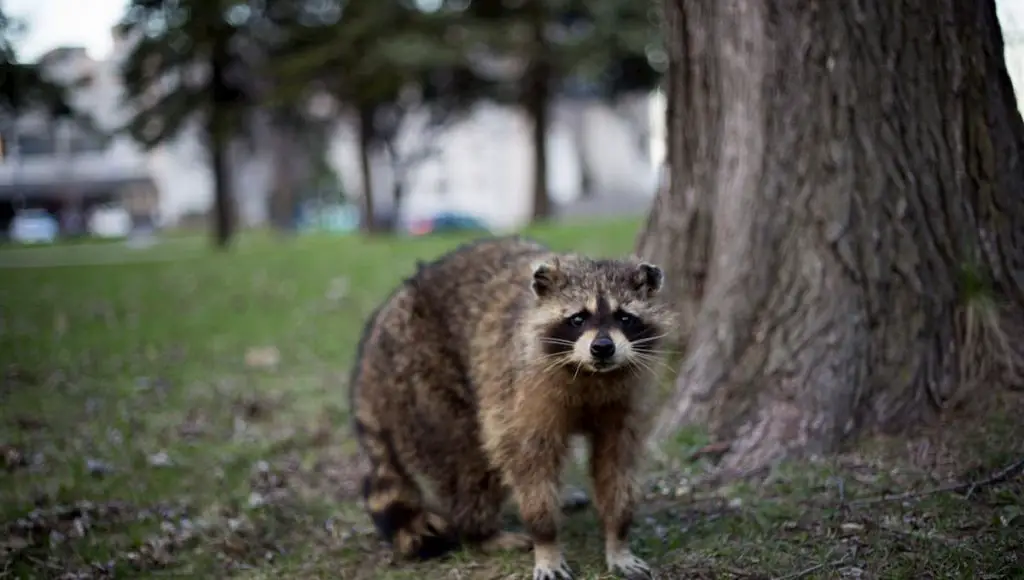


While raccoons can make a real mess of your yard, strewing trash in all directions over a surprisingly broad radius, they can wreak even greater havoc indoors, endangering your family’s health and safety.
#SOUNDS THAT SCARE RACCOONS HOW TO#
Photo: How to Get Rid of Raccoons Indoors Note: Bleach works so well at eliminating food odors, you might even pour some over any trash bags left outdoors in a unsecured receptacle. For best results, use a cleaner that contains bleach, a chemical that goes a long way toward vanquishing odors. Here, it’s well worth being thorough as a precaution, hose and wipe down your picnic or patio table at the end of a meal. If you and your family like to cook and/or dine al fresco, always take the time to clean up afterward.If you must feed your pets outdoors, feed them only at certain times of day, and remove anything uneaten. Any food-even pet food-left outside can attract raccoons.Additionally, consider double-bagging any trash that’s going to spend at least one night outdoors before your next scheduled garbage collection date. Purchase and use receptacles with lids that close tightly and lock into place.To eliminate a raccoon problem, therefore, it’s important to keep discarded food waste out of sight and to the greatest extent possible, contain or mask its odor. In fact, these intelligent pests may just bury or remove odor repellents to get rid of the smell.Raccoons are scavengers if they’re hungry, even mere morsels of food left out in the open can lure them to your property. They can be toxic and are harmful to pets, humans, and other wildlife as well as raccoons. Mothballs are another common scent deterrent that pest experts do not recommend. While the smell of fresh waste from one of these natural predators may keep the pests away, urine granules usually don’t have much effect.

Many stores also sell fox, coyote, or bobcat urine as a raccoon repellent. Hotter oils may harm plants, pets, birds, and beneficial insects like lady beetles and honey bees. Many sources suggest cayenne pepper, but this is often not potent enough to keep raccoons away. Since raccoons dislike spicy tastes, some homeowners spread hot pepper products over areas where the pests like to climb or dig. Homeowners can buy a wide variety of sprays, granules, and oils that claim to drive away these pests. Remove outdoor pet food or seal it in secure metal or glass containers.Ĭertain tastes and smells may also repel raccoons.Secure the garbage can lid with bungee cords or buy a new bin with a tight-fitting lid.Screen attic, porch, and foundation vents with heavy duty wire mesh.These cheap, easy methods are a good first step but may not be enough to keep raccoons away for good.Įliminating sources of food and shelter in the yard is another raccoon deterrent. Unfortunately, sound, light, and frightening tactics become less effective as the animals get used to them. Pinwheels, balloons, or empty soda cans blowing in the wind may also deter raccoons. Keeping these areas well-lit and playing loud music can disturb their rest and force the pests to move. Raccoons prefer dark, quiet places like attics, chimneys, or gaps beneath decks. Several raccoon deterrents may help while posing less risk. Trapping is an effective way to remove these pests, but it also comes with some dangers to users. Many residents want to know how to deter raccoons rather than how to trap them.


 0 kommentar(er)
0 kommentar(er)
